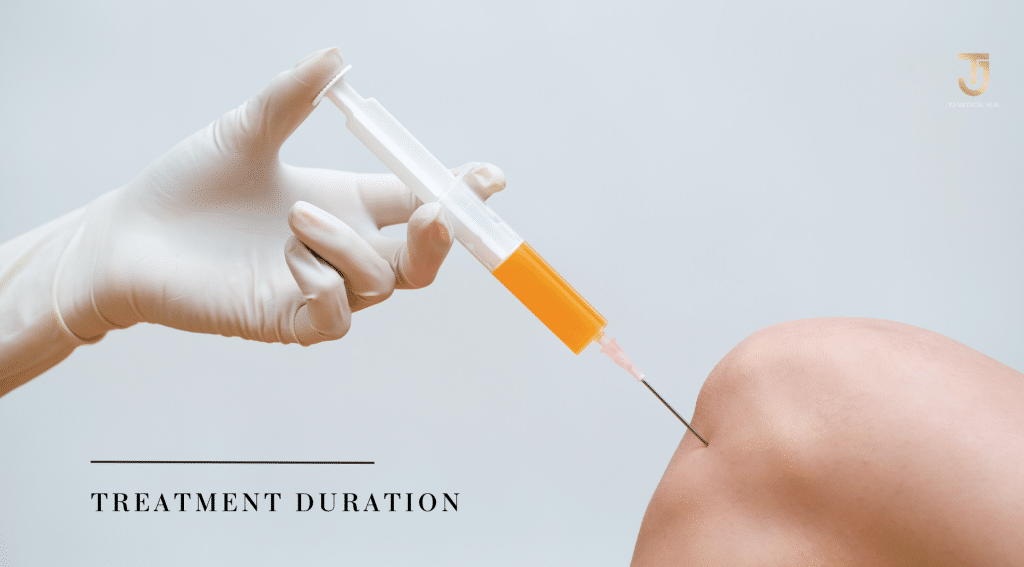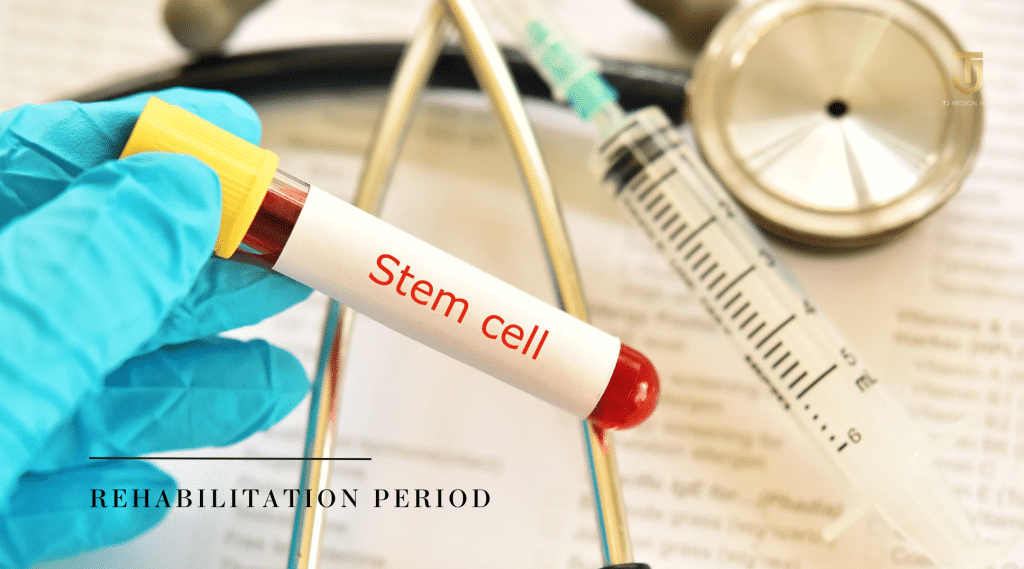Currently, Thailand stands out as one of the premier destinations for bone marrow transplantation. This procedure involves the replacement of malfunctioning bone marrow, which is unable to generate healthy blood cells, with a healthy donor’s bone marrow. Commonly referred to as a stem cell transplant, this crucial medical intervention is integral to ensuring the production of healthy blood.
This article provides comprehensive information on undergoing bone marrow transplantation in Thailand, a country recognized for its outstanding statistics in this medical field. By following this guide, you can gain insights into the process of obtaining bone marrow transplant surgery in Thailand, making informed decisions about your healthcare journey.
Bone marrow transplantation in Thailand

What is a Bone Marrow Transplant (Stem Cell Transplant)?
A Bone Marrow Transplant, also known as a Stem Cell Transplant, is a medical procedure that involves replacing damaged or diseased bone marrow with healthy stem cells. The bone marrow, found within the cavities of certain bones, is crucial for producing blood cells, including red blood cells, white blood cells, and platelets.
There are two main types of Bone Marrow Transplants:
- Autologous Transplant (Autograft): In this procedure, the patient’s own stem cells are harvested before undergoing high-dose chemotherapy or radiation. After the treatment, the harvested healthy stem cells are reintroduced into the patient’s body to help regenerate the damaged or destroyed bone marrow.
- Allogeneic Transplant (Allograft): In this type of transplant, the patient receives stem cells from a compatible donor, often a close family member or unrelated donor with a matching tissue type. The donor’s healthy stem cells replace the recipient’s damaged or diseased bone marrow.
Bone marrow transplants are commonly used to treat various conditions, including:
- Leukemia: A type of cancer affecting the blood and bone marrow.
- Lymphoma: A cancer of the lymphatic system.
- Multiple Myeloma: A cancer of plasma cells in the bone marrow.
- Aplastic Anemia: A condition where the bone marrow fails to produce enough blood cells.
- Certain Genetic Disorders: Some inherited conditions affecting the bone marrow.
The goal of a Bone Marrow Transplant is to replace the diseased or damaged marrow with healthy cells, allowing for the regeneration of normal blood cell production and the restoration of the immune system. The success of the transplant depends on factors such as the type of transplant, the underlying condition being treated, and the compatibility of the donor.
Bone marrow transplant (stem cell transplant) is primarily for individuals diagnosed with the following medical conditions:
- Autism Treatment in Children: In certain situations, bone marrow transplant is explored as a treatment option for autism.
- Palliative Care and Supportive Treatments: It may be used to alleviate symptoms and provide supportive care in some cases.
- Mobilization of Stem Cells from Peripheral Blood: This process involves collecting stem cells from the bloodstream for transplantation.
- Genetic Disorders such as Beta-Thalassemia: Inherited blood disorders that may benefit from bone marrow transplant.
- Severe Immunodeficiency: Conditions where the immune system is severely compromised.
- Gene Therapies: In certain experimental or therapeutic contexts, bone marrow transplant is utilized as part of gene therapy treatments.
The decision to undergo a bone marrow transplant is complex and depends on various factors, including the specific medical condition, the patient’s overall health, and the availability of a suitable donor. The procedure is often considered when other treatments have not been successful, and it offers a potential cure or significant improvement in the patient’s condition.
Treatment duration

The duration of Bone Marrow Transplant (BMT), also known as Stem Cell Transplant (SCT), can vary widely depending on several factors, including the type of transplant, the underlying medical condition being treated, the individual patient’s health, and any complications that may arise during the process. Here is a general overview of the typical timeline:
- Preparation Phase:
- Conditioning Regimen: This involves high-dose chemotherapy or a combination of chemotherapy and radiation therapy to destroy the diseased or damaged bone marrow and suppress the immune system.
- Stem Cell Collection: For allogeneic transplants, the donor’s or the patient’s stem cells are collected before the conditioning regimen.
- Transplantation Phase:
- Transplant Day: The actual infusion of the collected stem cells takes place. This is often referred to as “Day 0.”
- Engraftment Phase:
- Waiting for Engraftment: After the transplant, patients typically wait for the infused stem cells to engraft and start producing new blood cells. This process usually takes a few weeks.
- Recovery Phase:
- Recovery in Hospital: Patients may need to stay in the hospital for an extended period to manage potential complications and monitor the engraftment process.
- Outpatient Care: Once stable, patients may continue recovery as outpatients, with regular follow-up appointments to monitor blood counts and overall health.
- Post-Transplant Care:
- Immunosuppressive Medications: For allogeneic transplants, patients often take immunosuppressive medications to prevent graft-versus-host disease (GVHD), a potential complication where the donor’s immune cells attack the recipient’s tissues.
- Follow-Up Visits: Regular follow-up visits are essential to monitor for any signs of complications, check blood counts, and assess overall health.
The overall treatment duration can range from several weeks to several months, and sometimes even longer, depending on the specific circumstances. It’s important to note that the recovery period is variable, and patients may continue to experience improvements in their health over an extended period after the transplant.
Patients should work closely with their medical team to understand the specific details of their treatment plan and to receive guidance on post-transplant care and follow-up.
Rehabilitation Period

Recovery time following a Bone Marrow Transplant (Stem Cell Transplant) can vary and is contingent upon various factors, including the type of transplant, the individual’s overall health, and any potential complications. Understanding the general trajectory of the recovery process can provide insight into what to expect after undergoing this significant medical procedure.
In the initial post-transplant phase, spanning the first few weeks, patients typically undergo recovery within the hospital, where they receive close monitoring to detect and address any potential complications. The crucial process of engraftment, marked by the transplanted stem cells initiating the production of new blood cells, generally takes place during this period.
Moving into the mid-term recovery, extending from weeks to months, patients achieve stability and may transition to outpatient care, attending regular follow-up appointments. For individuals undergoing allogeneic transplants, immunosuppressive medications may be prescribed to mitigate the risk of graft-versus-host disease (GVHD). Continuous monitoring of blood counts and overall health remains a focal point during this phase.
Long-term recovery, spanning months to years, sees a gradual improvement in patients’ overall health. Resumption of normal activities becomes feasible as the immune system strengthens and blood counts stabilize. However, individual variability plays a significant role in this phase, influenced by patient-specific factors such as existing health conditions, which can affect the speed and extent of recovery. Complications, including infections or graft failure, may extend the recovery period.
Ongoing follow-up is imperative for sustained well-being. Continued monitoring, facilitated through regular follow-up appointments with the medical team, becomes crucial. These appointments serve as a platform for managing any potential long-term effects or complications that may arise. Adjustments to medications may also be implemented based on the patient’s response to treatment, ensuring a tailored and effective approach to post-transplant care.
Potential risks & side effects

The process of Bone Marrow Transplantation (Stem Cell Transplantation) is a complex medical procedure associated with potential risks and side effects. While the benefits of the transplant can be significant, it’s crucial to be aware of the potential challenges that may arise during and after the treatment.
Potential Risks and Side Effects:
- Graft-versus-Host Disease (GVHD):
- Description: A condition where the donor’s immune cells attack the recipient’s tissues.
- Symptoms: Skin rash, diarrhea, and liver problems are common symptoms.
- Infections:
- Risk: The immune system is compromised during the transplant, increasing susceptibility to infections.
- Prevention: Prophylactic antibiotics and antiviral medications are often prescribed.
- Graft Failure:
- Description: The transplanted cells may not engraft successfully, leading to a failure of the transplant.
- Management: Additional treatments or a second transplant may be considered.
- Organ Damage:
- Risk: High-dose chemotherapy or radiation can damage organs such as the liver, lungs, or kidneys.
- Monitoring: Regular medical assessments are conducted to detect and manage potential organ damage.
- Bleeding and Anemia:
- Cause: Destruction of the existing bone marrow can lead to low blood cell counts.
- Treatment: Blood transfusions may be required to address anemia, and precautions are taken to prevent bleeding.
- Nausea and Vomiting:
- Common during Conditioning: Side effects of the high-dose chemotherapy or radiation used in the conditioning regimen.
- Fatigue:
- Duration: Fatigue is a common side effect that may persist during the recovery phase.
- Infertility:
- Risk: The conditioning regimen can impact fertility, especially in prepubescent patients.
- Fertility Preservation: Options for fertility preservation may be considered before the transplant.
- Secondary Cancers:
- Risk: Long-term risk of developing secondary cancers due to the effects of chemotherapy and radiation.
- Monitoring: Regular screenings are conducted to detect and manage any potential secondary cancers.
- Psychosocial Effects:
- Emotional Impact: Coping with the challenges of the transplant process can have emotional and psychological effects.
- Support Services: Psychosocial support services are often available for patients and their families.
Individual Variability:
- Patient-Specific Responses: Responses to the transplant vary among individuals, and the severity of side effects can differ.
- Underlying Health Conditions: Existing health conditions may influence the likelihood and intensity of certain risks and side effects.
Ongoing Monitoring and Management:
- Regular Follow-Up: Close monitoring by healthcare professionals during the recovery phase to address and manage any emerging issues.
- Medication Adjustments: Medications may be adjusted to mitigate side effects and enhance overall well-being.
It’s essential for patients to have open communication with their healthcare team, follow prescribed protocols, and actively participate in post-transplant care to optimize the chances of a successful outcome while managing potential risks and side effects.
Bone marrow transplant surgery costs: how much is the surgery?

Bone Marrow Transplant (BMT) costs vary based on factors like the transplant type, medical condition, chosen facility, country, and potential complications. Autologous transplants using the patient’s own cells are generally less expensive than allogeneic transplants, which involve donor cells. Hospital choice impacts costs, with established centers often having higher expenses. Geographic location matters, as costs differ by country and region. Evaluations, medical complexity, complications, post-transplant care, and insurance coverage contribute to expenses. Consultation with healthcare providers and financial counselors is crucial for accurate cost estimates. Understanding insurance, exploring financial assistance, and considering cost-saving options are vital for effective financial management. Verify the latest cost information with healthcare providers or authorities, as of my last update in January 2022.
Best countries for bone marrow surgery abroad

Choosing the best country for bone marrow transplant surgery abroad depends on various factors, including the availability of experienced medical professionals, state-of-the-art facilities, and the overall healthcare system. As of my last knowledge update in January 2022, some countries known for their advanced medical infrastructure and expertise in bone marrow transplantation include:
- United States: Renowned for cutting-edge medical facilities and experienced healthcare professionals, the United States is a leading destination for medical treatments, including bone marrow transplants.
- Germany: Germany is recognized for its high-quality healthcare system and expertise in medical research and treatments, making it a preferred choice for many medical procedures, including bone marrow transplants.
- Thailand: Known for its medical tourism industry, Thailand offers quality healthcare services, including bone marrow transplants, with a focus on patient comfort and well-being.
- Singapore: With a well-developed healthcare system and world-class medical facilities, Singapore is emerging as a hub for medical tourism, including bone marrow transplantation.
- India: India has reputable medical institutions offering cost-effective bone marrow transplant procedures. Some hospitals in major cities have gained international recognition for their expertise in this field.
It’s important to note that the availability of healthcare services and the reputation of medical facilities can change over time. Before making any decisions, individuals considering bone marrow surgery abroad should conduct thorough research, consult with healthcare professionals, and ensure that the chosen destination meets their specific medical needs and preferences. Additionally, checking for the latest information and reviews can help in making informed decisions.
Why choose TJ Medical Hub for Bone Marrow Transplant ?
TJ Medical Hub ensures that you receive treatment in clinics that have achieved the highest success rates in bone marrow transplant surgery globally. The treatments provided through TJ Medical Hub abroad are of superior quality, affordable, and easily accessible. Our primary goal is to ensure that everyone has access to the medical services they need at reasonable costs. For this reason, we consistently prioritize patients and connect individuals with the healthcare they require.
- Benefit from our 100% free comprehensive guide: If you are considering a bone marrow transplant abroad, find all the details in this article. Information on the procedure, recovery time, costs, and the best clinics is readily available.
- Access the best doctors: TJ Medical Hub not only facilitates treatment abroad but also empowers you to choose the best doctor. The doctors we recommend are experts in the field of bone marrow transplant surgery.
- Experience world-class medical care: The finest medical service is not always the most expensive. TJ Medical Hub simplifies your access to top-notch medical services within your budget.
- 24/7 patient support: If you are planning to undergo treatment abroad, remember that TJ Medical Hub will be with you from the beginning to the end of the process. Our support is available around the clock, and you can reach us whenever you need assistance.


